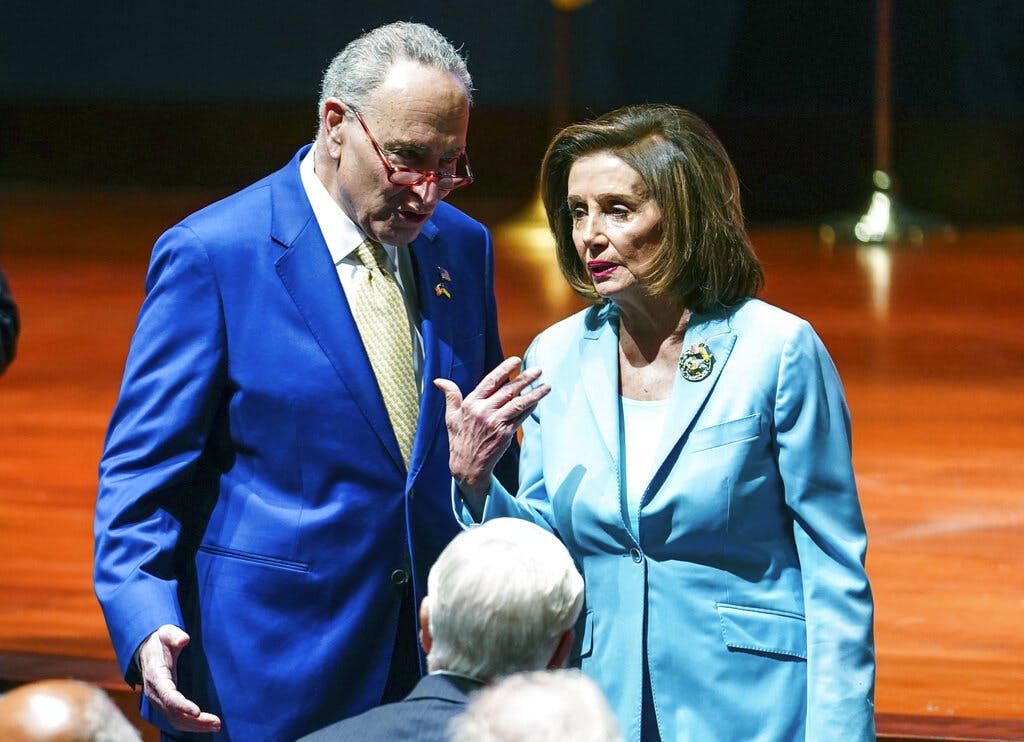Calls for New Blood in Congress Face an Uncomfortable Truth: Almost Everyone There Is Old
While there is no shortage of candidates who would line up to replace President Biden should he retire, succession in Congress is less clear.

With Democrats questioning the future of party leadership in Congress, the Democratic bench — particularly in the House — is looking a little thin.
Congresswoman Elissa Slotkin of Michigan’s 8th district called for “a new generation” of Democratic leadership, saying on NBC’s “Meet the Press” that the party needs “new blood.”
Ms. Slotkin, who is running in one of the closest House races in America, is only the latest in a growing chorus of Democrats calling for a change in party leadership.
With most expecting President Biden to run for re-election, Majority Leader Schumer to stay on in the Senate, and Speaker Pelosi to continue to lead House Democrats, the calls appear to be going unheard, for now.
The midterms may change these calculations, however, with most expecting that a bad midterm result might shorten the current leadership’s tenure.
While there would be plenty of candidates vying to run in Mr. Biden’s place should he choose to retire, succession in Congress is less clear, raising the question: Who would step up to lead?
In the House, the assistant speaker, Congresswoman Katherine Clark, would be a candidate, having worked with the current speaker while representing Massachusetts’s 5th district since 2013.
Congressman Hakeem Jeffries of New York’s 8th district would also be a potential candidate to assume the majority or minority leader role after Ms. Pelosi’s departure, as he has some leadership experience as the Democratic Caucus chairman.
Both Ms. Clark and Mr. Jeffries, 59 and 52 years old respectively, are decades younger than the current Democratic leadership in the House. After Ms. Clark and Mr. Jefferies, however, the list of clear up-and-comers is difficult to sketch.
The House majority leader, Steny Hoyer, is the oldest member of the Democratic House leadership team at 83, followed by the majority whip, James Clyburn, and Ms. Pelosi, who are both 82.
The current House Republican leadership is about the same age as the potential next generation of Democratic leaders.
The minority leader, Kevin McCarthy, is 57, and so is the minority whip, Steve Scalise. The Republican conference chairwoman, Elise Stefanik, is the youngest leader in the GOP at 38, and the fourth-ranking Republican policy committee chairman, Gary Palmer, is the oldest at 68.
“It’s sort of ironic: The party that does better with younger voters has an older leadership,” an associate editor at Sabato’s Crystal Ball, Miles Coleman, tells the Sun. He credits this phenomenon as a contributing factor in the current wave of criticism.
“I’ve seen Clark’s name thrown around often, and she could be an option,” he says. “I’d also watch Hakeem Jeffries, although the fact that Schumer is also from New York may work against him.”
One of the issues in the Democratic Party, in Mr. Coleman’s assessment, is that it tends to be more hierarchical than the opposition, which has led some formerly high-profile representatives to run for Senate or pursue other opportunities.
Senator Lujan, for example, was once a much-talked-about member of the House before being elected one of the senators of New Mexico in 2021. Senator Van Hollen, once a rising star in the House, made a similar move in the 2016 elections.
In the Senate, the majority leader, Charles “Chuck” Schumer, the majority whip, Richard Durbin, and the assistant Democratic leader, Patty Murray, are all septuagenarians.
As long as Democrats control the Senate, the leadership seems unlikely to change. There are, however, more relatively young senators in leadership positions.
Senator Baldwin of Wisconsin and Senator Cortez Masto, 60 and 58 respectively, both hold leadership positions in the upper chamber. They both represent swing states as well, provided Ms. Cortez Masto wins re-election.
A vice chairman of the policy and communications committee, Cory Booker, is also often talked about as a future Senate leader, as is Senator Klobuchar. The two represent New Jersey and Minnesota respectively.
Mr. Coleman says that Ms. Klobuchar might be an astute choice from and electoral perspective because “after her presidential run, she’s a bit more nationally known, and would bring a ‘heartland’ perspective to a party that’s criticized as ‘coastal.’”
A professor of political science at Washington University in Saint Louis, Daniel Butler, says that more potential leaders are likely to emerge when the current leadership shows concrete signs of stepping down.
“Leadership questions always seem to work out,” he said. “There are lots of legislators who are capable of serving in these positions.”
He added that because fewer districts are competitive now compared to previous decades, there are actually more legislators who could dedicate time and attention to the role rather than just re-election.
“Being the leader is probably as attractive as ever,” he said. “The parties are more ideologically unified than 30 years ago, making it easier to get intra-party agreement.”

